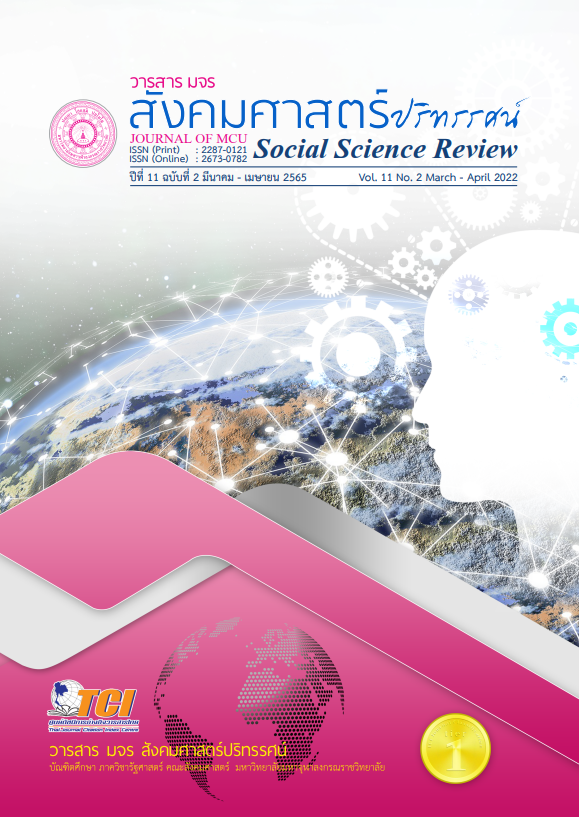แนวทางการพัฒนาการศึกษาขององค์กรปกครองส่วนท้องถิ่น ในศตวรรษที่ 21: กรณีศึกษา เขตพัฒนาพิเศษภาคตะวันออก (ฉะเชิงเทรา ชลบุรี ระยอง)
คำสำคัญ:
การพัฒนาการศึกษา, องค์กรปกครองส่วนท้องถิ่นบทคัดย่อ
บทความวิจัยนี้มีวัตถุประสงค์เพื่อศึกษาบริบทและปัญหา วิเคราะห์ระบบการศึกษา และนำเสนอแนวทางการพัฒนาระบบการศึกษา ใช้วิธีวิจัยเชิงคุณภาพ ศึกษาเอกสาร สัมภาษณ์เจาะลึกกับผู้ให้ข้อมูลสำคัญ 20 คน และจัดกลุ่มสนทนาเฉพาะ 7 คน ใช้การวิเคราะห์เชิงเนื้อหาและเชิงอุปนัย จัดกลุ่มข้อมูลและตรวจสอบข้อมูลแบบสามเส้า
ผลการศึกษาวิจัยพบว่า 1. การศึกษาเป็นแบบรวมศูนย์จากส่วนกลาง ทำให้ท้องถิ่นไม่สามารถบริหารจัดการการศึกษาให้เหมาะสมกับพื้นที่ตนเองได้อย่างเต็มที่ และไม่มีการส่งเสริมความเข้มแข็งของชุมชน นโยบายการศึกษา เน้นความเป็นเลิศทางวิชาการจนบั่นทอนคุณภาพของผู้เรียนด้วยการประเมินผลและตัวชี้วัด เน้นการวัดผลจากคะแนนสอบ หลักสูตรยังผูกติดอยู่กับหลักสูตรกลาง ทำให้องค์ความรู้ท้องถิ่นและความสามารถของนักเรียนสูญหาย ซึ่งเป้าหมายการศึกษา มุ่งเน้นการผลิตคนเข้าสู่ตลาดแรงงานเพื่อตอบสนองความต้องการทางเศรษฐกิจเป็นหลัก ลดทอนความสุขจากการเรียนรู้ 2. การจัดการศึกษาของไทยมีแนวโน้มของการมุ่งสู่การขับเคลื่อนไปสู่ยุคไทยแลนด์ 4.0 ประกอบด้วย ด้านการพัฒนาความคิดสร้างสรรค์ในกระบวนการจัดการเรียนการสอนเพื่อพัฒนานวัตกรรม 3. แนวทางการพัฒนาระบบการศึกษาใช้รูปแบบองค์ประกอบ 4 ด้าน หรือ 4 Ls คือ การเรียนรู้เพื่อที่จะรู้ การเรียนรู้เพื่อสามารถทำได้ การเรียนรู้ในการอยู่ร่วมกัน และการเรียนรู้ในการใช้ชีวิต
เอกสารอ้างอิง
พาสนา จุลรัตน์. (2561). การจัดการเรียนรู้สำหรับผู้เรียนในยุค Thailand 4.0. Veridian E-Journal, Silpakorn University. 11(2), 2363-2380.
วรากรณ์ สามโกเศศ. (2558). วิกฤติการศึกษาไทย การศึกษากับยาพิษแอบแฝง. บทบรรยายพิเศษ ณ มหาวิทยาลัยธุรกิจบัณฑิต กันยายน 2558. สืบค้น 15 พฤศจิกายน 2562. จาก http://www.birdkm.com/outside-classroom/outsideclass/thai-education-crisis.
วิลาสินี วัฒนมงคล. (2560). วิกฤตการศึกษาไทยในยุค 4.0. วารสาร “ศึกษาศาสตร์ มมร” คณะศึกษาศาสตร์ มหาวิทยาลัยมหามกุฏราชวิทยาลัย. 6(1), 61-62.
ชาญณรงค์ พรรุ่งโรจน์. (2557). 3 สาเหตุหลัก 'วิกฤติการศึกษาไทย'. การแลกเปลี่ยนความคิดเห็นกับสำนักงานคลังสมอง วปอ. เพื่อสังคมเกี่ยวกับการศึกษาไทย. สืบค้น 15 พฤศจิกายน 2562, จาก https://www.thairath.co.th/content/434275
ชัยวัฒน์ แก้วพันงาม และรับขวัญ ธรรมาภรณ์พิลาศ. (2556). นโยบายการศึกษาและการพัฒนาทรัพยากรมนุษย์ของไทยภายใต้เศรษฐกิจสร้างสรรค์. วารสารเศรษฐศาสตร์ปริทรรศน์ สถาบันพัฒนศาสตร์, 7(1), 251-306.
อานนท์ ศักดิ์วรวิชญ์. (2560). ความสุขของแรงงานไทยมาจากอะไร?: ผลกระทบของสถานะทางเศรษฐกิจและสังคม ความสมดุลของงานและชีวิต และสุขภาพจิตที่มีต่อระดับความสุข. วารสารพัฒนบริหารศาสตร์, 57(4), 47.
Hounsell, D. (1979). Learning to learn: Research and development in student learning. Higher Education, 8(6), 453–469.
Lee, et. al. (2013). Local education authorities and student learning: the effects of policies and practices. School Effectiveness and School Improvement. 23(2), 133–158.
Madani, R. A. (2019). Analysis of Educational Quality, a Goal of Education for All Policy. Higher Education Studies. 9(1), 100-101.
ดาวน์โหลด
เผยแพร่แล้ว
รูปแบบการอ้างอิง
ฉบับ
ประเภทบทความ
สัญญาอนุญาต
ลิขสิทธิ์ (c) 2022 วารสาร มจร สังคมศาสตร์ปริทรรศน์

อนุญาตภายใต้เงื่อนไข Creative Commons Attribution-NonCommercial-NoDerivatives 4.0 International License.
เพื่อให้เป็นไปตามกฎหมายลิขสิทธิ์ ผู้นิพนธ์ทุกท่านต้องลงลายมือชื่อในแบบฟอร์มใบมอบลิขสิทธิ์บทความให้แก่วารสารฯ พร้อมกับบทความต้นฉบับที่ได้แก้ไขครั้งสุดท้าย นอกจากนี้ ผู้นิพนธ์ทุกท่านต้องยืนยันว่าบทความต้นฉบับที่ส่งมาตีพิมพ์นั้น ได้ส่งมาตีพิมพ์เฉพาะในวารสาร มจร สังคมศาสตร์ปริทรรศน์ เพียงแห่งเดียวเท่านั้น หากมีการใช้ภาพหรือตารางหรือเนื้อหาอื่นๆ ของผู้นิพนธ์อื่นที่ปรากฏในสิ่งตีพิมพ์อื่นมาแล้ว ผู้นิพนธ์ต้องขออนุญาตเจ้าของลิขสิทธิ์ก่อน พร้อมทั้งแสดงหนังสือที่ได้รับการยินยอมต่อบรรณาธิการ ก่อนที่บทความจะได้รับการตีพิมพ์ หากไม่เป็นไปตามข้อกำหนดเบื้องต้น ทางวารสารจะถอดบทความของท่านออกโดยไม่มีข้อยกเว้นใดๆ ทั้งสิ้น





